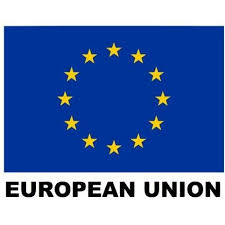Cotonou Agreement extended to November 2021
AFTER more than two years of intense negotiations, stakeholders from the European Union (EU) and Africa, Caribbean and Pacific (ACP) have arrived at a political deal for a new agreement, which will soon replace the existing Cotonou Partnership Agreement that has since been extended to November 30, 2021, to facilitate the promulgation of the new pact.The Cotonou Agreement is a treaty between the EU and ACP, which was ratified by 78 ACP countries in June, 2000, in Cotonou, Benin’s largest city.
With the agreement initially slated to expire on December 31, 2020, countries had started discussions two years ago to formulate a new deal, which would encompass contemporary issues and maintain the cohesive relationship between the two blocs. Those discussions concluded on December 3, 2020, with Chief negotiators of the EU– Jutta Urpilainen and the Organization of the African, Caribbean and Pacific States (OACPS), Robert Dussey– arriving at a political deal on the text for the new agreement to replace the Cotonou Partnership Agreement.
The deal, which will require initialing, signature and ratification by the parties, was the product of intense negotiations covering several areas of mutual interest including human rights, democracy and governance; peace and security; human and social development; environmental sustainability and climate change; inclusive sustainable economic growth and development; and migration and mobility.
According to a press statement from the Ministry of Foreign Affairs and International Cooperation, the preliminary text will be subjected to legal verification before the agreement is initialed by the chief negotiators, marking the end of the negotiations. Signing of the agreement is set to take place in Apia, Samoa in the second half of 2021.
The new Partnership Agreement paves the way for an unprecedented regional focus by combining the ‘common foundation’ with three specific, action-oriented regional protocols (Africa-EU, Caribbean-EU, Pacific-EU) which focus on the priorities of each region.
The regional protocols will be annexed to the common foundation and contain their own specific governance to manage and steer the relations with the EU and the different regions involved, including through joint parliamentary committees. There will also be an overarching joint OACPS-EU framework with a strong parliamentary dimension.
Serving in the capacity of Vice-chair of the OACPS Central Negotiating Group and Lead negotiator for the Caribbean-EU Regional Protocol at Ambassadorial level, Guyana, through its Embassy in Belgium, played a lead role in the achievement of convergence on several sensitive issues throughout the negotiating process. Together, Member States of the EU and OACPS represent over 1.5 billion people and more than half of the seats at the United Nations.
Upon its entry into force, the new agreement will replace the Cotonou Partnership Agreement as the legal framework to inform political and economic cooperation between the EU and the 79-member countries of the OACPS, and equip them to address emerging needs and global challenges over the next 20 years. Georgetown was the site for the signing of the “Georgetown Agreement” on June 6, 1975. This agreement marked the conception of the ACP which has enjoyed a long-standing partnership with the EU, commencing with the first Lomé Convention in 1975.
The Cotonou Agreement, the successor to the Lomé convention, broadened the scope of this partnership to encompass development cooperation, economic and trade cooperation and political dialogue. Guyana’s position has been that the new agreement should aim to transform the ACP economies through investments in industries, infrastructure and Information and Communication Technology (ICT). The new agreement should also address expanding market access for ACP products and services while also ensuring environmental security, particularly for the ACP’s small-island developing and low-lying coastal states.






















